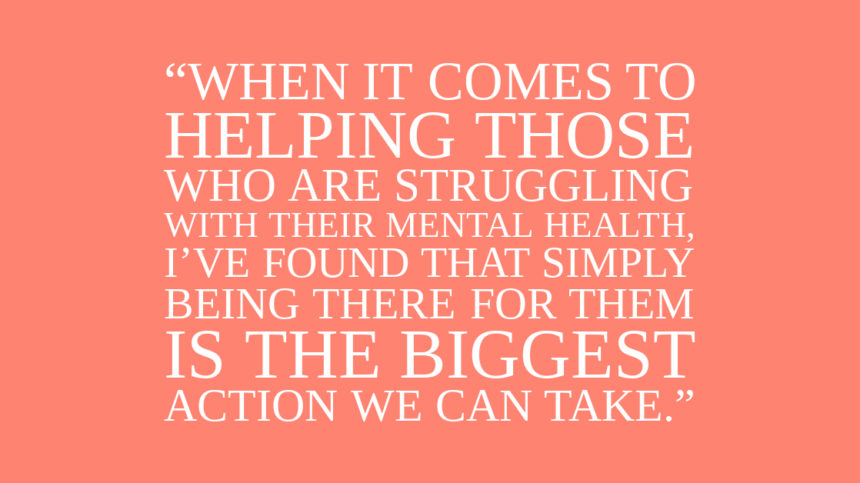
As a nation, we are accustomed to overthinking: what decisions we should make on a daily basis, which paths we should take long-term, how we should have presented ourselves in a conversation we had earlier that same day, who we should have said hello to in the break room, and so on. These instances of overthinking rarely result in any positive event or circumstance, and, often, overthinking tends to make us feel sadder or worse about the event we are overthinking than we did when we first started thinking about it!
This is also true for difficult topics and conversations, like mental health conditions and helping a friend in need. When a friend or colleague comes to us and says, “Hey, I need advice,” we begin thinking: What if the advice I give them is bad? What if they take my advice and the result is disastrous? What if I don’t know what to say? Better yet – what if I don’t know what to do?
We often don’t look into the positiveness of a friend or colleague feeling comfortable enough with us to even ask that question in the first place, a question that may seem typical and easy, but a loaded question that takes courage and vulnerability to even voice. What if instead of overthinking, we decided to sit back and listen, and be there for the person asking for our advice? What if the advice that they’re seeking is in fact not words at all, but a listening ear?
When it comes to helping those who are struggling with their mental health, I’ve found that simply being there for them is the biggest action we can take.
Sometimes, we feel awkward sitting in silence, or eager to give an answer before we’ve heard an entire story or situation. I urge us to rethink these tendencies, and instead, embrace the silence, and embrace the power of an understanding nod in helping somebody feel safe and secure. In this digital age we live in, it is no wonder that we have lost respect for those essential human connection pieces such as the benefit of eye contact and sharing physical space with a loved one or a friend.
Sometimes, when somebody is asking us for advice, telling us about how they are feeling, or what they are going through, the most important thing we can do is listen, non-judgmentally. By being there, physically, we show that we care deeply about them and their struggles, even if we don’t voice any response. Silence can often be powerful.




















